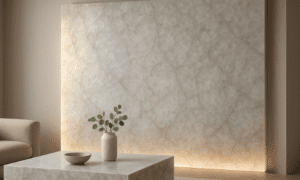Acoustic Wall Panels are panels that are used to create sound barriers. They come in a variety of sizes and shapes, and can be painted or finished to match any interior design. Acoustic Wall Panels are commonly used in offices, classrooms, theaters, and other places where sound is an issue.
What are acoustic wall panels and what are they used for?
Acoustic wall panels are a type of soundproofing material that are used to create a barrier against sound. They are often installed in rooms where noise is a concern, such as kitchens and bathrooms. Acoustic wall panels can also be used to reduce sound pressure levels in larger spaces, such as offices.
The panels work by absorbing sound waves and reducing the amount of noise that is transmitted through the material. This makes it possible to reduce the noise level in an area without having to install additional soundproofing hardware or modifications to the structure of the building.
There are a number of different types of acoustic wall panels available on the market today. Some panels are designed for use in specific locations, such as kitchens or bedrooms, while others are more universal and can be used in many different areas. It is important to choose the right type of acoustic wall panel for your needs before installation.
Types of acoustic wall panels
There are many different types of acoustic wall panels, and they can be used for a variety of purposes. Acoustic wall panels are typically used to create soundproofing or acoustic insulation, but they can also be used to deflect sound or noise. Some common uses for acoustic wall panels include:
-Soundproofing: Acoustic wall panels can be used to create soundproofing in a room or building. By sealing off areas of the structure with acoustic wall paneling, you can reduce noise levels in the area.
-Acoustic Insulation: Acoustic wall panels can also be used as an acoustic insulation material. This type of panel is designed to stop sound from traveling through the walls and ceilings in a building. Acoustic insulation is important for rooms that have high ceilings or walls, as it can help to reduce noise levels significantly.
-Deflecting Noise: Acoustic wall panels can also be used to deflect noise. By creating anechoic chambers inside of a room, you can reduce the amount of noise that comes into the room from outside sources. This is especially useful if you live in a noisy environment or work in an office with loud coworkers.
Advantages of acoustic wall panels
Acoustic wall panels are typically made from a variety of materials, including fiberglass, vinyl, and plywood. They are designed to be installed in places where sound transmission is an issue, such as between rooms in a residence or between corridor and office areas.
The panels are composed of numerous small Acoustic Panels that are held together by adhesive or nails. When the panel is hit with sound waves, the panels vibrate and create a reflective wave that travels back towards the source of the noise. This process can reduce or eliminate the noise from reaching its intended target.
Some common uses for acoustic wall panels include reducing noise levels in residential areas, controlling room acoustics in commercial facilities, and suppressing sound during construction activities.
How to choose the right acoustic wall panel for your needs
Acoustic wall panels are often used in commercial and industrial settings to reduce noise and provide a more comfortable work environment. They’re also popular in residential settings, where they’re used to reduce noise from children or other residents.
To choose the right acoustic wall panel for your needs, consider the specific application. For example, if you’re using an acoustic wall panel to reduce noise in a commercial setting, you’ll want one with higher sound absorption capacity. If you’re using it to reduce noise from children or other residents in a residential setting, you may not need as high of a sound absorption capacity.
Another thing to consider is the type of acoustic wall panel. There are two main types: fixed panels and mobile panels. Fixed panels usually have a more substantial feel than mobile panels and are less likely to be moved around accidentally. However, fixed panels can be more expensive than mobile panels and may not be able to accommodate larger areas.
If you have questions about which acoustic wall panel is best for your specific application, contact a qualified contractor or acoustic specialist.
Conclusion
Acoustic wall panels are a versatile addition to any home and can be used for a variety of purposes. From providing sound insulation to creating visual effects, acoustic wall panels have many uses that range from practical to fun. If you are looking to add some extra ambiance or just want to improve the sound quality of your home, acoustic wall panels are an ideal option. So why not give them a try? You may be surprised at just how useful they can be.



































